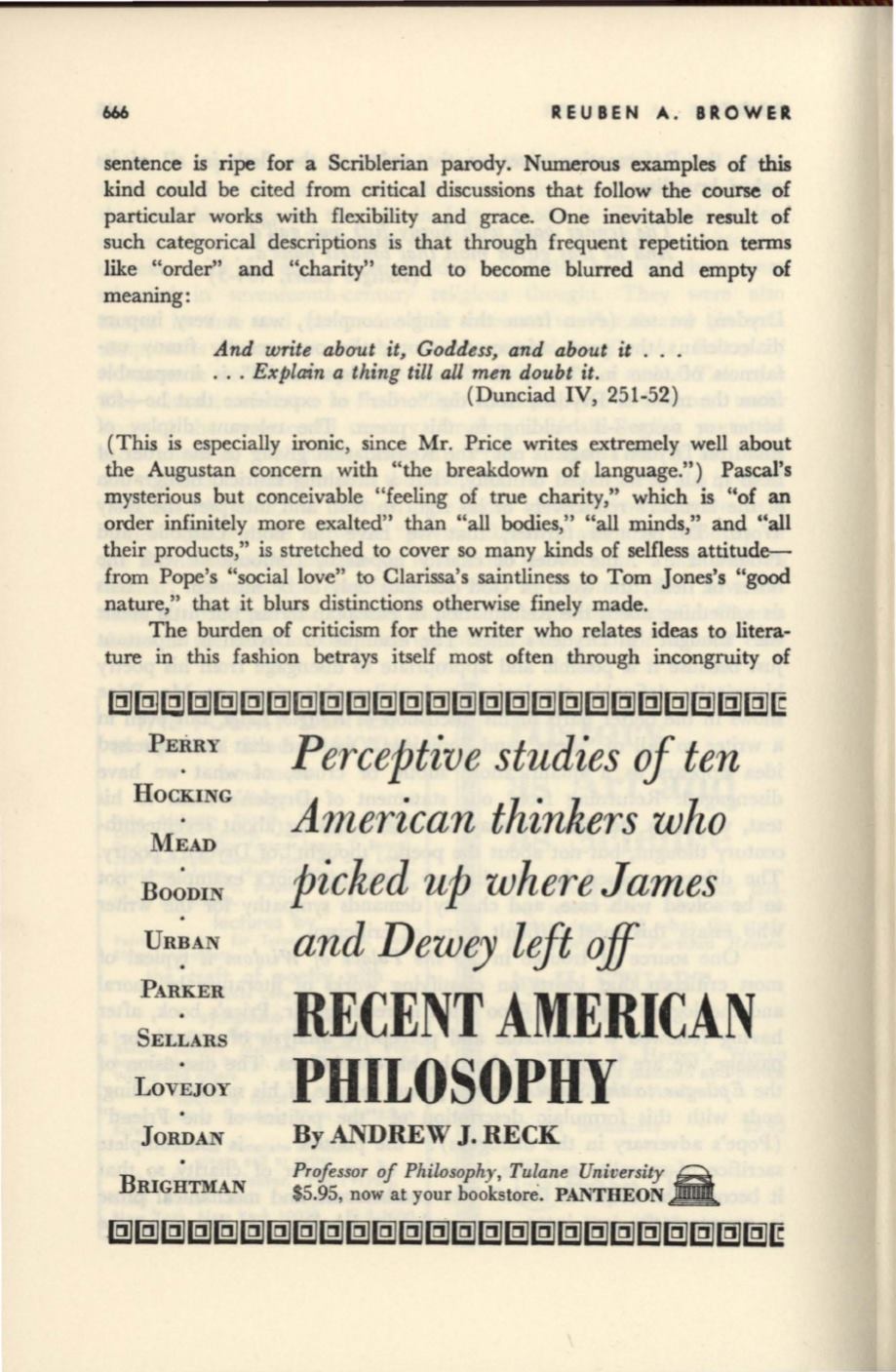

666
REUBEN A. BROWeR
sentence is ripe for a Scriblerian parody. Numerous examples of
this
kind could be cited from critical discussions that follow the course of
particular works with flexibility and grace. One inevitable result of
such categorical descriptions is that through frequent repetition terms
like "order" and "charity" tend to become blurred and empty of
meaning:
And write about it, Goddess, and about it
. . .
. . .
Explain a thing till all men doubt it.
(Dunciad IV, 251-52)
(This is especially ironic, since Mr. Price writes extremely well about
the Augustan concern with "the breakdown of language.") Pascal's
mysterious but conceivable "feeling of true charity," which
is
"of an
order infinitely more exalted" than "all bodies," "all minds," and "all
their products," is stretched to cover so many kinds of selfless attitude–
from Pope's "social love" to Clarissa's saintliness to Tom Jones's "good
nature," that it blurs distinctions otherwise finely made.
The burden of criticism for the writer who relates ideas to litera–
ture in this fashion betrays itself most often through incongruity of
~~~~~~~~~~~~~~~~~~~~~~~~~~
HOCKING
MEAD
BOODIN
URBAN
PARKER
SELLARS
LOVEJOY
JORDAN
BRIGHTMAN
Perceptive studies of ten
American thinkers who
picked up where James
and Dewey left off
RECENT AMERICAN
PHILOSOPHY
By ANDREW
J.
RECK
Professor of Philosophy , Tulane University
.Q.
$5.95, now at your bookstore. PANTHEON..lI.II!DI..









